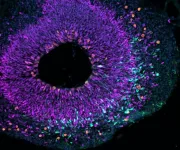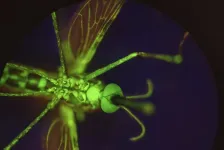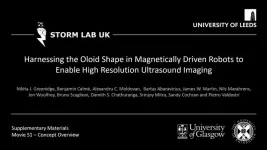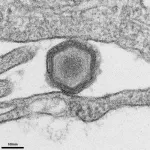(Press-News.org) HOUSTON ― The University of Texas MD Anderson Cancer Center today announced that Jeffrey E. Lee, M.D., an internationally regarded leader in the field of oncology, has been appointed chief medical executive (CME) effective April 1.
Prior to his appointment, Lee served as CME ad interim, demonstrating strength as a leader committed to advancing the institution’s efforts in research, patient care, prevention and education. Assuming the role of CME is the culmination of Lee’s 34-year tenure at the institution, where he has made substantial contributions in the field of oncology and served in multiple leadership roles.
After joining MD Anderson in 1991 as a fellow in surgical oncology, Lee became a member of the faculty and rose through the academic ranks. Since 2010, he has held the endowed Irving and Nadine Mansfield and Robert David Levitt Cancer Research Chair.
“Dr. Lee has demonstrated tremendous capability and talent as a trusted and respected leader,” said Peter WT Pisters, M.D., president of MD Anderson. “His work as interim chief medical executive and substantial contributions to MD Anderson are a testament to his commitment to excellence, and I am confident in his ability to help us navigate the opportunities before us as we work to achieve our mission to end cancer.”
In addition to his extensive clinical expertise, Lee has been recognized for his leadership abilities through multiple roles within Surgical Oncology, the Division of Surgery and the institution, including his appointment as chair of Surgical Oncology from 2010 to 2021. Notably, in 2019, he was named vice president for Cancer Network’s Medical and Academic Affairs. In that role, Lee successfully championed the development of MD Anderson’s Cancer Network’s quality platform, making significant contributions to the redesign of the network strategy, the creation of its academic infrastructure and the activation of two large national partners. He also was selected as a 2019 MD Anderson Excellence in LEADership Awards honoree in recognition of his leadership excellence.
"The opportunity to lead our incredibly talented team of clinicians, scientists and staff is a distinct honor,” Lee said. "Inspired by the needs of our patients and working under our shared mission, I’m committed to guiding our collective efforts to deliver powerful impact for our patients.”
On Sept. 1, 2022, Lee was named vice president for Clinical Operations Strategy Execution and Preparedness/deputy chief operating officer (COO). Responsibilities in this role included serving as a member of the COO Leadership Team, as a faculty lead for MD Anderson’s service line initiative, and co-lead of the institution’s upstream capacity management project.
One year later, he was appointed chief cancer network officer to oversee MD Anderson’s ongoing development of its community of experts united in our mission, including seven national partner health systems; international Ministries of Health; international agencies; and non-government organizations.
In addition to his work at MD Anderson, Lee has held multiple leadership roles and is an active member in over 30 international, national and local professional societies.
Lee earned his M.D. from Stanford University School of Medicine, where he also completed his internship and residency in surgery and a research fellowship in tumor immunology. His previous leadership roles at MD Anderson include his tenure as medical director of the Ben Love/El Paso Corporation Melanoma and Skin Center.
Over the course of Lee’s career, his work has resulted in over 600 peer-reviewed publications. He has had a three-decade peer-review funded collaborative laboratory research program focused on melanoma genetics, melanoma immune and inflammatory biomarkers, and the development of novel antibody-based therapeutics for melanoma and other cancers.
“Remarkably talented as a clinical leader and faculty member, Dr. Lee combines expertise, knowledge of the institution and a passion for our mission, making him an invaluable asset at MD Anderson,” said Stephen G. Swisher, M.D., division head of Surgery at MD Anderson. “He’s an outstanding addition to our executive leadership team whose experience working closely with division heads ensures faculty perspectives are shared and prioritized in institutional decision-making.”
END
MD Anderson names Jeffrey E. Lee, M.D., Chief Medical Executive
2025-03-26
ELSE PRESS RELEASES FROM THIS DATE:
Sensor technology uses nature’s blueprint and machinery to monitor metabolism in body
2025-03-26
Life’s essential functions are powered by a set of compounds called metabolites, which are involved in every natural process including producing energy, regulating cell activity and keeping the body’s systems in balance. Tracking these molecules offers a window into the onset and status of many diseases, overall health, response to treatment and the intricate workings of biological systems.
However, today’s metabolite sensing methods fall short. Most rely on resource-intensive lab tests that give only brief snapshots from isolated samples. The few sensors that can track metabolites continuously are largely limited to detecting blood sugar.
An interdisciplinary ...
Chan Zuckerberg Initiative announces new biohub to develop breakthrough imaging technologies to observe cells in action
2025-03-26
REDWOOD CITY, Calif. (March 26, 2025) — The Chan Zuckerberg Initiative (CZI) announced a new grand challenge to develop groundbreaking imaging technologies to transform how scientists observe, measure and understand living cells and organisms. CZI’s two powerhouse institutes, CZ Biohub San Francisco and CZ Institute for Advanced Biological Imaging, will leverage their complementary expertise to form a new Biohub unmatched in the field of life science imaging research. They will combine their teams at a new science campus in Redwood City, Calif., adjacent to CZI ...
Encryption breakthrough lays groundwork for privacy-preserving AI models
2025-03-26
In an era where data privacy concerns loom large, a new approach in artificial intelligence (AI) could reshape how sensitive information is processed.
Researchers Austin Ebel and Karthik Garimella, Ph.D students, and Assistant Professor of Electrical and Computer Engineering Brandon Reagen have introduced Orion, a novel framework that brings fully homomorphic encryption (FHE) to deep learning — allowing AI models to practically and efficiently operate directly on encrypted data without needing to decrypt it first.
The implications of this advancement, ...
Top global award for young technologists goes to researcher who advanced AI with high-performance computers
2025-03-26
ACM, the Association for Computing Machinery, today named Torsten Hoefler, a Professor at ETH Zurich, the recipient of the 2024 ACM Prize in Computing for fundamental contributions to high-performance computing and the ongoing AI revolution. Hoefler developed many of the core capabilities of modern supercomputers and defined key aspects of the algorithms for distributing AI models on them.
The ACM Prize in Computing recognizes early-to-mid-career computer scientists whose research contributions have fundamental impact and broad implications. ...
How did the large brain evolve?
2025-03-26
The results of the study show that the two genes act in a finely tuned interplay: one ensures that the progenitor cells of the brain multiply more, while the other causes these cells to transform into a different type of progenitor cell - the cells that later form the nerve cells of the brain. In the course of evolution, this interplay has led to the human brain being unique in its size and complexity.
The newly gained insights not only provide a deeper understanding of the evolutionary development of our brain but could also help to better comprehend how certain developmental disorders or diseases of the brain arise. ‘Our findings deepen the fundamental ...
Rare disease drug nitisinone makes human blood deadly to mosquitoes
2025-03-26
In the fight against malaria, controlling the mosquito population is crucial.
Several methods are currently used to reduce mosquito numbers and malaria risk. One of these includes the antiparasitic medication ivermectin. When mosquitoes ingest blood containing ivermectin, it shortens the insect’s lifespan and helps decrease the spread of malaria.
However, ivermectin has its own issues. Not only is it environmentally toxic, but also, when it is overused to treat people and animals with worm ...
Mini rolling robot takes virtual biopsies
2025-03-26
Embargoed: Not for Release Until 2pm U.S. Eastern Time (6pm GMT) Wednesday, 26 March 2025
With images and videos
A tiny magnetic robot which can take 3D scans from deep within the body, that could revolutionise early cancer detection, has been developed by researchers.
The team, led by engineers from the University of Leeds, say this is the first time it has been possible to generate high-resolution three-dimensional ultrasound images taken from a probe deep inside the gastrointestinal ...
Researchers design tools to develop vaccines more efficiently for African swine fever virus (ASFV)
2025-03-26
Rockville, Maryland—March 26, 2024—Researchers from the J. Craig Venter Institute (JCVI), the Friedrich-Loeffler-Institut (FLI), and the International Livestock Research Institute (ILRI) have developed a reverse genetics system for African swine fever virus (ASFV). This new system will aid researchers in developing vaccines and in studying the pathogenesis and biology of ASFV, a highly contagious, deadly viral disease affecting domesticated and wild pigs, especially prevalent in Africa, Europe, Asia, and the Caribbean. A recent study estimates if ASFV reached the United States it could result ...
How survivors spanned the globe after Earth’s biggest mass extinction
2025-03-26
Scientists don’t call it the “Great Dying” for nothing. About 252 million years ago, upward of 80% of all marine species vanished during the end-Permian mass extinction – the most extreme event of its kind in Earth’s history.
What followed was a mysterious, multimillion-year span that could be called the “Great Dulling,” when marine animal communities looked remarkably alike all over the planet, from the equator to the poles. Researchers have long sought an explanation for this so-called taxonomic homogenization – a scene that played out after other mass extinctions over the past ...
Even in egalitarian Sweden, a "culture of silence" may prevent university staff and students from reporting sexual harassment
2025-03-26
Even in egalitarian Sweden, a "culture of silence" may prevent university staff and students from reporting sexual harassment, with just an 8.1% reporting rate for students who had experienced either rape or attempted rape.
####
Article URL: https://plos.io/4bW0elh
Article title: What determines the ‘culture of silence’? Disclosing and reporting sexual harassment among university employees and students at a large Swedish public university
Author countries: Sweden
Funding: This work was funded by the Swedish Research Council, ...






